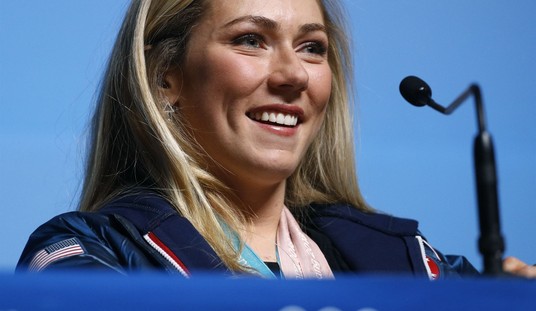It’s George Orwell’s world and we’re only living in it.
There’s an insidious argument being advanced in the wake of the Israeli-Hamas war. It posits the notion that criticizing anti-Semitism in the United States is the same as being anti-Palestinian. How that topsy-turvy, upside-down logic made its way into the mainstream is unclear. But the argument has been embraced by the left — probably because it stifles debate on their own rabid Jew-hate.
A case in point is what happened to Chancellor Christopher Molloy of Rutgers University. Molloy issued a somewhat confusing statement, condemning anti-Semitism on Wednesday.
“We are saddened by and greatly concerned about the sharp rise in hostile sentiments and anti-Semitic violence in the United States. Recent incidents of hate directed toward Jewish members of our community again remind us of what history has to teach us. Tragically, in the last century alone, acts of prejudice and hatred left unaddressed have served as the foundation for many atrocities against targeted groups around the world.”
Of course, Molloy had to check all the boxes in condemning all hate.
“Last year’s murder of George Floyd brought into sharp focus the racial injustices that continue to plague our country, and over the past year there has been attacks on our Asian American Pacific Islander citizens, the spaces of Indigenous peoples defiled, and targeted oppression and other assaults against Hindus and Muslims.”
Ordinarily, that reference to “targeted oppression and other assaults” against Muslims might be seen as condemning anti-Palestinian hate.
But Molloy failed to condemn Israeli violence against Palestinians. This hurt the feelings of Palestinians who have worked hard to create their own status as victims and get angry when their labors aren’t recognized.
So Molloy sent out another email the next day, apologizing for his oversight and implicitly acknowledging that it was wrong to condemn anti-Semitism so prominently.
“We are writing today as a follow-up to the message sent on Wednesday, May 26th to the university community. We understand that intent and impact are two different things, and while the intent of our message was to affirm that Rutgers–New Brunswick is a place where all identities can feel validated and supported, the impact of the message fell short of that intention. In hindsight, it is clear to us that the message failed to communicate support for our Palestinian community members. We sincerely apologize for the hurt that this message has caused.”
Causing hurt to some of those who hate just isn’t part of the social justice agenda. Hate, at least against certain people and certain groups, should be allowed to grow in the breast of a social justice warrior until it bursts forth in a spasm of righteous indignation.
Or a Molotov cocktail thrown into a police station.
In his eagerness to be “inclusive” in condemning hate Molloy has beclowned himself.
If a condemnation of antisemitism in the U.S. because of a recent upsurge in violence, threats, and vandalism, combined with a condemnation of all other forms of bigotry, triggers Students for Justice in Palestine, the chancellor’s response could have taken many forms, including silence. The one response that’s completely unacceptable is to endorse SJP’s view that condemning antisemitism in the United States makes you anti-Palestinian, or indeed reflects any view on the Arab-Israeli conflict at all.
This kind of Orwellian doublethink has become the norm on the left. That you can both condemn hate while at the same time condemning calling out the haters would have been considered insane a few years ago.
Now it’s mainstream thought at a major university.
An earlier version of this article misattributed the quote above to Eugene Volokh. We apologize for the error.










Join the conversation as a VIP Member